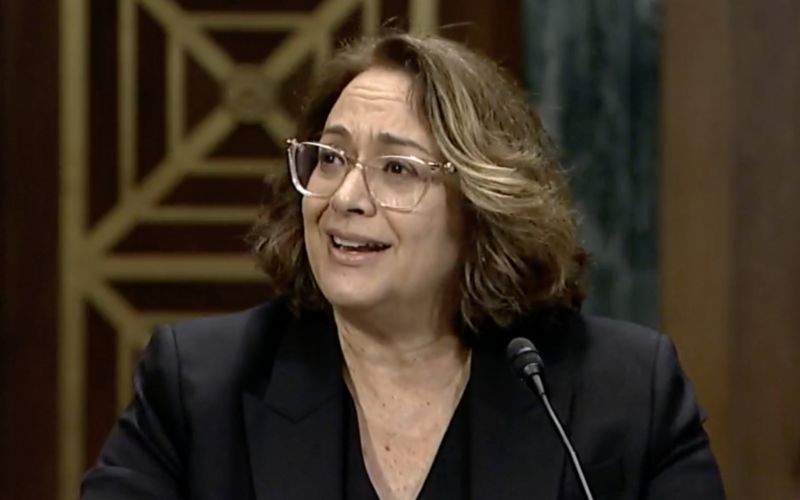
- Details
- By Elyse Wild
In a historic vote last week, Judge Shanlyn Park was confirmed to the U.S. District Court for the District of Hawai'i, making her the first Native Hawaiian woman to serve as a district court judge.
The U.S. Senate confirmed Park in a bipartisan vote of 53-45. Native Hawaiians comprise 21.8% of the population served by the district where Judge Park will preside.
Park is currently a state court judge and former federal public defender. Her confirmation was praised by the Native American Rights Fund.
 Make A Donation Here
Make A Donation Here
Her confirmation was praised by the Native American Rights Fund (NARF), the National Native American Bar Association, and the National Congress of American Indians (NCAI).
"Federal courts hear many cases involving Native people, so federal court judges must be aware of the political status, legal principles, and rights of Tribal Nations and Native individuals," NARF Executive Director John Echohawk said in a statement. "The confirmation of Judge Park takes a step in the right direction for a more balanced and representative federal judiciary system."
Makalika Naholowaʻa, President of the National Native American Bar Association, said in a statement that Park's confirmation will underscore the importance of having Native Hawaiian representation on the bench,
"Inclusion of Native Hawaiians in the courts that preside over matters in Hawaii is critically important to advancing trust in the judicial system and the rule of law. Judge Park's deep experience in Hawaii state and federal courts, in criminal and civil matters, and her deep connections to the comm
More Stories Like This
Native News Weekly (August 25, 2024): D.C. BriefsUS Presidents in Their Own Words Concerning American Indians
Oral History Project Announces 14th Stop in Portland, Oregon: NABS Continues to Gather Crucial Stories Across Indian Country
NABS Postpones New Mexico Oral History Project Visit to January
Monday Morning (November 17, 2025): Articles You May Have Missed This Past Weekend
Help us tell the stories that could save Native languages and food traditions
At a critical moment for Indian Country, Native News Online is embarking on our most ambitious reporting project yet: "Cultivating Culture," a three-year investigation into two forces shaping Native community survival—food sovereignty and language revitalization.
The devastating impact of COVID-19 accelerated the loss of Native elders and with them, irreplaceable cultural knowledge. Yet across tribal communities, innovative leaders are fighting back, reclaiming traditional food systems and breathing new life into Native languages. These aren't just cultural preservation efforts—they're powerful pathways to community health, healing, and resilience.
Our dedicated reporting team will spend three years documenting these stories through on-the-ground reporting in 18 tribal communities, producing over 200 in-depth stories, 18 podcast episodes, and multimedia content that amplifies Indigenous voices. We'll show policymakers, funders, and allies how cultural restoration directly impacts physical and mental wellness while celebrating successful models of sovereignty and self-determination.
This isn't corporate media parachuting into Indian Country for a quick story. This is sustained, relationship-based journalism by Native reporters who understand these communities. It's "Warrior Journalism"—fearless reporting that serves the 5.5 million readers who depend on us for news that mainstream media often ignores.
We need your help right now. While we've secured partial funding, we're still $450,000 short of our three-year budget. Our immediate goal is $25,000 this month to keep this critical work moving forward—funding reporter salaries, travel to remote communities, photography, and the deep reporting these stories deserve.
Every dollar directly supports Indigenous journalists telling Indigenous stories. Whether it's $5 or $50, your contribution ensures these vital narratives of resilience, innovation, and hope don't disappear into silence.
 The stakes couldn't be higher. Native languages are being lost at an alarming rate. Food insecurity plagues many tribal communities. But solutions are emerging, and these stories need to be told.
The stakes couldn't be higher. Native languages are being lost at an alarming rate. Food insecurity plagues many tribal communities. But solutions are emerging, and these stories need to be told.
Support independent Native journalism. Fund the stories that matter.
Levi Rickert (Potawatomi), Editor & Publisher

